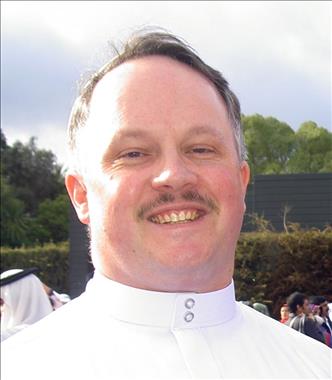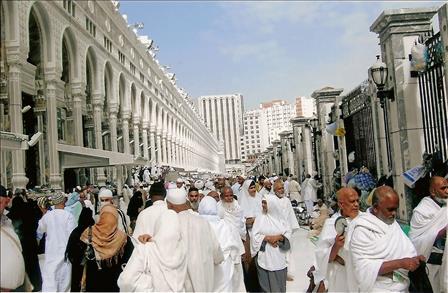 The Islamic festival of Eid al Adha is the second most important religious holiday observed by Muslims across New Zealand.
The Islamic festival of Eid al Adha is the second most important religious holiday observed by Muslims across New Zealand.
Eid Al Adha will be celebrated on October 3 and October 4, 2014.
It marks the willingness of Prophet Ibrahim (Abraham in the Bible) to sacrifice his son Ismail by the command of Allah.
At the last minute, the Almighty intervened and a lamb was substituted.
Chapter 37 (As-Saaffat) of the Holy Quran (Verse 106) explains: “Inna hatha lahu-wa al-balao-al-mubeen” (For this was obviously a trial).
The Festival also celebrates the end of the Pilgrimage (Hajj) to Mecca in Saudi Arabia.
Within the Lunar-based Islamic calendar, the first day of Eid Al Adha falls on the tenth day of the Zul-Hijjah (the Month of Pilgrimage).
Remedying Muslims
Eid is also an opportunity to Muslims everywhere to pray and meditate deeply on the direction society is taking, here and abroad. Evermore, ordinary folk have asked whether an ‘Islamisation of knowledge’ could help remedy the situation of Islam and Muslims worldwide.
The term is used to articulate various efforts to synthesise the ethics of Islam within a plethora of fields of modern thought and philosophy.
Ideally, the final product would be a new ijma (consensus) amongst Muslims across the world on an appropriate fiqh (jurisprudence) and a new scientific methodology, which maintained the ethical norms of Islam.
However many Muslims, both liberal and conservative, remain dubious. There is, after all, an alarming propensity in our era to attach the word ‘Islam’ or ‘Islamic’ to a wide variety of subjects willy-nilly to try and impose some kind of moral legitimacy or political coherency to the subject matter or cause.
A little reading here can go a long way.
Current trends
Dr Hasan Dzilo of the Faculty of Islamic Studies in Skopje, Macedonia, wrote a useful article a few years ago in the British Journal ‘Islam and Christian-Muslim Relations,’ outlining current trends in Muslim thought on the topic.
As we are not all aware, ‘modern’ knowledge is not entirely neutral. Yet knowledge plays a fundamental role in the religious structure of faiths, including Islam, and is as important as the existence (wujud) of man.
As Dr Dzilo wrote, “Everything but tawhid is obligation (wajibat), advice (mandubat and makruhat) and recommendation (hasanat) – known under the shared name of Sharia, while the knowledge of it is, according to Muslims, fiqh.”
Myriad forms
The Islamisation of knowledge engages multiple lines and methods to the myriad of forms of modern-world thought within the context of the Islamic intellectual traditions – embracing metaphysical, epistemological, ethical and methodological premises concerning the modern question of knowledge.
Dr Dzilo reminds readers that the expression “Islamisation of Knowledge” is not to be interpreted in the literal sense of the term ‘Islamisation’ (which is often used in religious or political contexts).
Nor is the Islamisation of knowledge a contemporary syntagma. Rather he was discussing an Islam-related way of thinking that has been continuously re-established throughout Islamic history.
Challenges to Islam
Eid al Adha is a time for Muslim communal celebration and prayer but also for a deeper reflection on Islam itself, and indeed the tasks and challenges of Islamic philosophy and science to uncover the principle of unity over (or the order underlying) the variegated multiplicity of thought.
The ‘Islamisation of Knowledge’ cannot function as a simplistic mechanical procedure applied from above, but must concern the adjustment of certain forms of knowledge to the context of contemporary knowledge, including its various perspectives and points of view. Eid is a good occasion to ponder this salient point.
Recommended Reading: Hasan Dzilo, “The concept of ‘Islamisation of Knowledge’ and its Philosophical Implications in Islam and Christian-Muslim Relations (Vol 23 No 3, July 2012, Pages 247-256).
Hajji Abdullah Drury evinces deep interest in Islamic research, leading to a number of literary works that stimulate the human thought. His book, ‘Islam in New Zealand’ narrates the life and journey of Muslims since their arrival more than 100 years ago. Copies of the Book can be purchased from Mr Drury who lives in Hamilton. Email: abdullah@xtra.co.nz

File Photo by Afiff Shah of Hajj Pilgrims in Mecca






